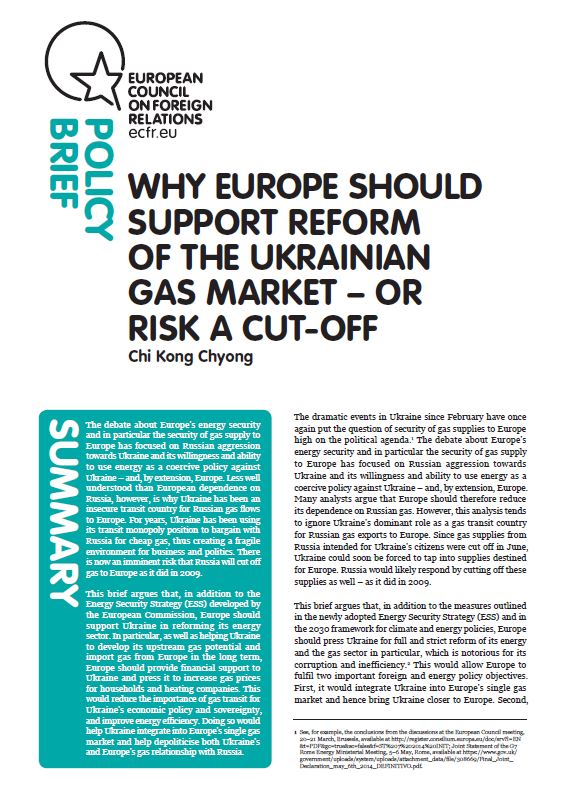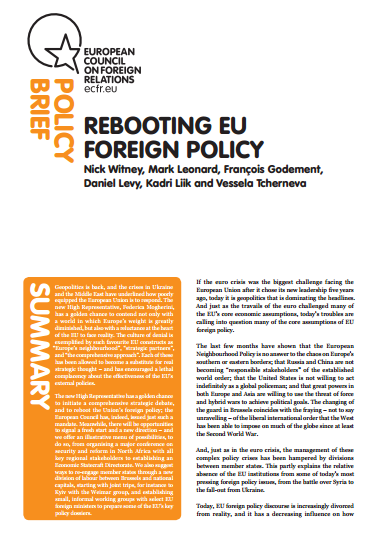Who are the contenders in the Ukraine elections?
Ukraine's parliamentary elections are set for 26 October and the president's party is unlikely to win the seats to govern alone
Ukraine's parliamentary elections are set for 26 October and the president's party is unlikely to win the seats to govern alone
The conflict between Russia and the West is evidence of a post-Cold War clash of worldviews that has never been resolved

To avoid gas cut-offs Europe should help Ukraine reform
Europe will face another catastrophic gas shortage this winter if the EU and its member states do not act fast to resolve a gas price dispute between Russia and Ukraine
The first of four posts in the run-up to the Ukrainian elections on 26 October, where nothing less than the size, shape, strength and viability of the Ukrainian state itself is at stake.

The EU is ill-equipped to respond to foreign policy crises
Andrew Wilson on “Ukraine crisis: what it means for the West”
An extract from Andrew Wilson's latest book
There is no “Austrian solution” for Ukraine
Can a new “containment” of Russia work in an age of economic interdependence?